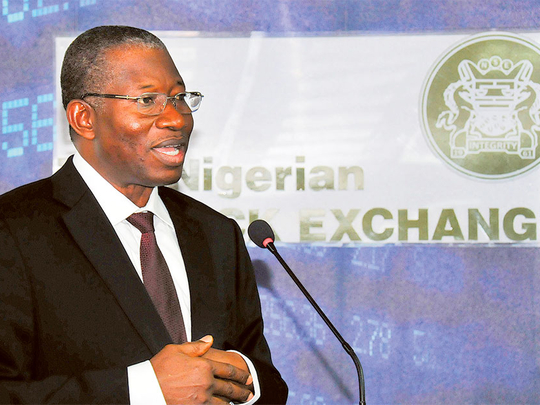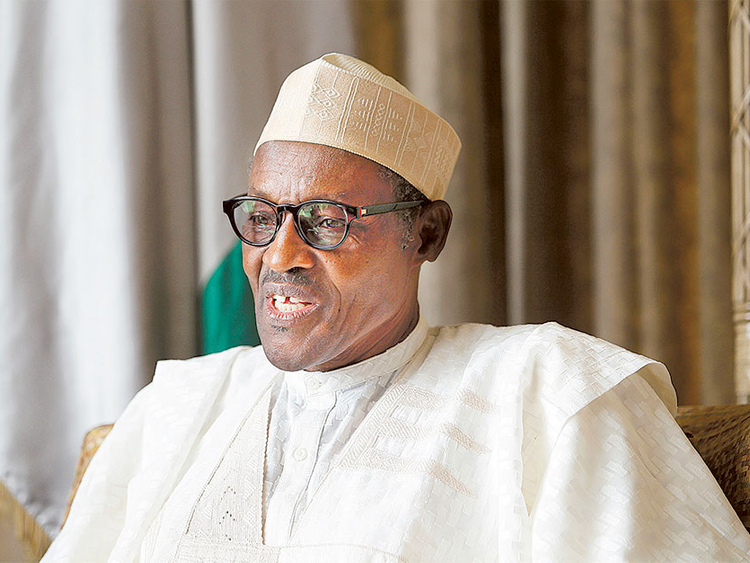
Lagos: Africa’s most populous nation, Nigeria, goes to the polls to elect a new president on Saturday after a controversial postponement, with the six-week delay seeing major gains against Boko Haram militants.
Fourteen candidates, including the first woman, are eyeing the top job but the election is a two-horse race between incumbent Goodluck Jonathan and former military ruler Muhammadu Buhari.
Saturday’s poll is being watched closely, given the strong opposition challenge and the possibility of defeat for a sitting head of state.
The head of the country’s electoral commission, Attahiru Jega, maintains that “everything humanly possible” has been done to ensure a free, fair, credible and peaceful vote.
But security threats — from Boko Haram to political violence — are the prime concern, with the militants renewing attacks on civilians, despite a wave of claimed military successes.
Nigeria ramped up security nationwide on Wednesday before general elections this weekend, shutting land as well as sea borders and vowing to crack down hard on political unrest.
Security is at the fore ahead of the presidential and parliamentary vote, with military operations against Boko Haram forcing the postponement of the poll’s initial February 14 date.
Since then, Nigeria’s military and its coalition partners Niger, Chad and Cameroon have claimed a series of successes, forcing the Islamist militants out of captured territory in the northeast.
Fears of a bombing campaign against voters and polling stations remain though, after a spate of suicide attacks against “soft” targets such as markets and bus stations in the north.
The Department of State Services, Nigeria’s secret police, on Wednesday underlined the threat, calling for vigilance in crowded places before, during and after Saturday’s election.
“Voters are advised to be wary of persons in loose or bulky midriff clothings, which are inappropriate for the weather,” said spokeswoman Marilyn Ogar.
“Look out for unattended bags, luggage, dustbins, strange containers and other suspicious items.”
The DSS also urged that cars, motorbikes and three-wheel motorised taxis should be parked away from polling stations and for shops and markets to shut.
Previous Nigerian elections have been blighted by extreme political violence.
In 2011 some 1,000 people were killed after Goodluck Jonathan beat former military ruler Muhammadu Buhari in the presential election.
But Jonathan on Wednesday said that the government would “not tolerate any form of violence during or after the polls”.
“I am giving my total commitment to peaceful elections in the country, not because I am persuaded to do so but because I believe in it,” the president added.
Fears are still high of clashes between supporters of his ruling Peoples Democratic Party (PDP) and Buhari’s All Progressives Congress (APC) after a tight election campaign.
Nigeria’s human rights commission has said nearly 60 people have been killed already in election-linked violence, despite an agreement between all candidates for a peaceful poll.
Just how many of the hundreds of thousands of people displaced by the violence in the northeast will be able to vote will come under scrutiny, as will the first use of voter ID card technology.
The election delay has hurt Nigeria’s crude-fuelled economy, which has been battered by the global oil shock, creating investor uncertainty and an urgent problem for whoever wins.
There have been warnings against any premature declaration given fears that the rebels, who have allied themselves to Daesh, will revert to guerrilla tactics.
Nnamdi Obasi, senior researcher at the International Crisis Group, said Boko Haram is still able to carry out its threat to disrupt elections, which it views as “un-Islamic”.
“Its fighters may not be able to seize new territory but they could certainly still send suicide bombers to public places, including polling centres,” he said.
“In many parts of Borno state, the security situation is still tenuous and displaced persons have not returned or settled down well enough to participate in elections.
On Wednesday, Jonathan ordered the closure of all land and sea borders from midnight until the same time on Saturday, after voting is over.
The interior ministry said the move was designed “to allow for peaceful conduct of the forthcoming national elections”.
At the same time, the immigration service warned that non-Nigerians should not take part “in any part of the election processes”.
“Elsewhere in the region, the polls will go but very much in an atmosphere of unease and insecurity.”
Political violence, which has plagued previous Nigerian elections and which in 2011 saw nearly 1,000 people killed in clashes, is also seen a major risk.
Nigeria’s human rights commission recorded nearly 60 deaths in December and January and there are fears of many more with the campaign so close.
The head of the Nigeria federal police, Suleiman Abba, vowed on Friday that trouble-makers will face “the full wrath of the law”.
The United Nations has also promised “accountability for anyone who will choose to contest the election results through violent means”.
“The world really is watching,” UN Under-Secretary General Jeffery Feltman said on a visit to Abuja this week.
Some 68.8 million of the 173 million Nigerians are registered to vote in the presidential and parliamentary election, which are followed on April 11 by state assembly and gubernatorial polls.
But Jega has been under pressure over the electoral commission’s preparations, particularly from Jonathan’s ruling Peoples Democratic Party (PDP).
The PDP has criticised the rate of distribution of biometric voter ID cards, the technology used to “read” them and the ability of election volunteers to use the devices.
Buhari’s All Progressives Congress (APC) for its part senses a government plot to revert to the former paper system, which made ballot rigging easier, allowing the PDP to cling to power.
Jega said on Monday that 67.8 million cards or 98.5 percent of cards had been sent out - up from 66.5 percent a week before February 14 - but some 20 million had not been collected.
A further delay has been ruled out, with Jonathan’s mandate due to expire on April 30 and a formal handover of power set for May 29.
The opposition has said the overall result will be in doubt if the displaced in its northeastern heartland are unable to vote.
Arrangements have been made to allow internally displaced people (IDPs) to vote at polling stations in or near camps in the restive region, Jega said on Monday.













